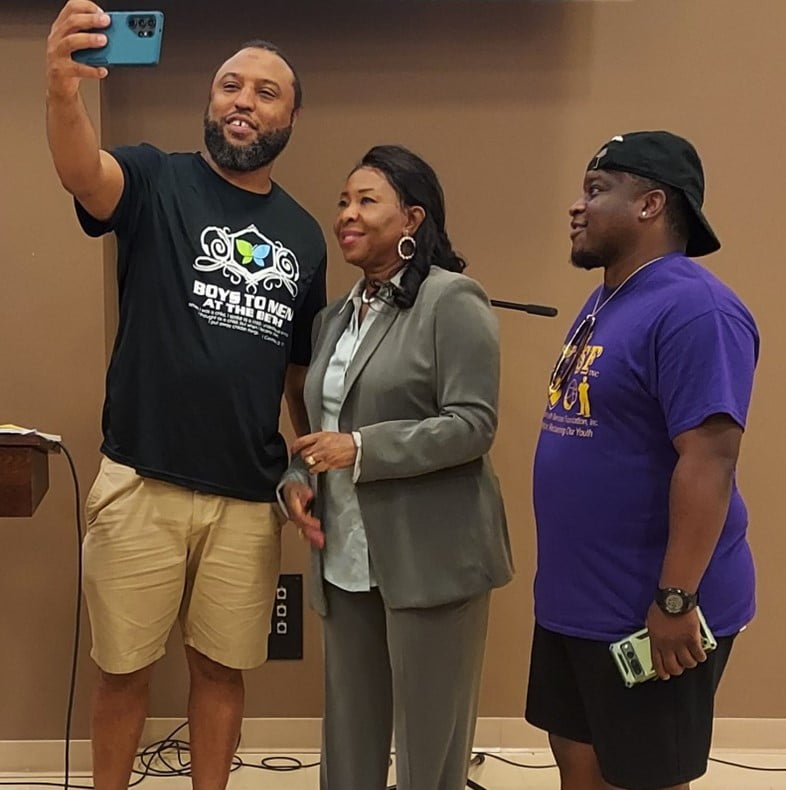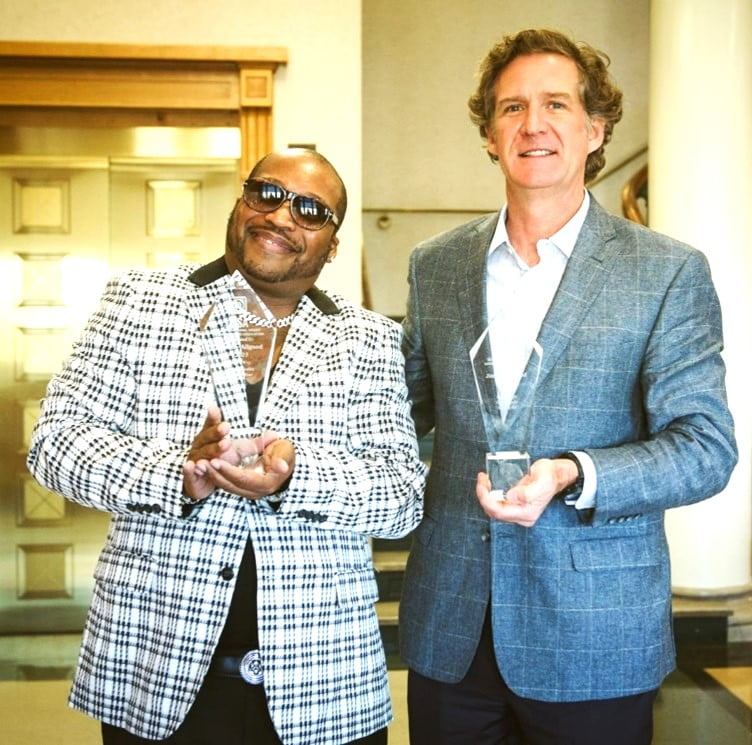Jacob A. Waddingham Assistant Professor of Management, Texas State University
Miles Zachary Associate Professor of Management and Entrepreneurship, Auburn University
If you’ve been thinking about starting your own business lately, you’re not alone. Americans began launching ventures in record numbers during the pandemic, with an above-trend pace continuing through 2023.
Unfortunately, many of of these enterprises won’t last long: 30% of new businesses fail within two years, and half don’t last past five, according to the Small Business Administration. While some of these unlucky founders will pursue new ventures, many others will try to rejoin the traditional labor force.
You can’t blame them. People often see “going back to work” as a safety net for risk-taking entrepreneurs. As professors of management who study entrepreneurship, we wanted to see if this was true.

Screened out
So we surveyed more than 700 hiring professionals to determine whether founders really can get new jobs that easily, as well as seven former entrepreneurs who successfully made the transition back into the workforce.
We found that former business owners were actually less likely to get interviews compared with applicants with only traditional experience. This was true regardless of whether they had sold or closed their businesses. And the longer they were out of the traditional workforce, the worse their chances of success were.
Why do employers hesitate to take a chance on former business owners?
It starts at the earliest stages, with the recruiters who screen people into – or out of – consideration for interviews. We found that recruiters worried that entrepreneurs would jump ship to start their own companies as soon as they can. This is a problem for employers, since hiring is a long, expensive process that can take months or even years to pay off.
For example, one recruiter told us, “I am looking for candidates that will be long-term employees, as we invest quite a bit into each hire. When I interview people, it is generally a red flag if they say they want to start their own business or already have a business on the side.”
A related fear: A worker who leaves to start a new venture might be tempted to poach talent, clients and tactics from their old employer.
Recruiters were also concerned that former entrepreneurs may refuse to take directions. Spending time as your own boss can make it difficult to adapt to a lower place on the organizational hierarchy. As one recruiter in our study put it, former business owners “are used to being the one who makes all the decisions.”
They also raised issues of job fit, questioning whether ex-entrepreneurs’ knowledge and abilities would translate to traditional work. “The concern would be the skills they have developed don’t transfer,” said one of our interviewees. In addition, for entrepreneurs who have worked alone, it can be difficult for recruiters to know how well they’ll perform with others.
Even when a former entrepreneur is a good match for a position, recruiters can fail to make the connection because of stereotypes or misunderstandings about their experience. A former bakery owner we interviewed recalled applying for a position and being pigeonholed based on their experience: “They said, ‘Oh, I wish we were hiring for a baker!’ and I said, ‘No, no, no, I’m applying for your front office.’ It was like they thought all I knew was just a baker, but that is far from the truth.”
Landing an interview
Our research adds to a growing body of evidence that ex-entrepreneurs struggle to get interviews and offers. Thankfully, it also offers insights that organizations can use to improve their applicant pool – and that enterprising job seekers can use to boost their odds.
Our study found that former entrepreneurs face less bias when they apply to roles that seem entrepreneurish – in other words, that are in line with stereotypes about business owners. So, for example, they’re more likely to land interviews when applying for positions with a lot of autonomy, such as in new business development, rather than those that require following lots of rules, such as in legal compliance.
Relatedly, our research suggests that recruiters – perhaps unintentionally – have biases against ex-entrepreneurs. Acknowledging such tendencies is a good first step toward minimizing their influence. Moreover, not all recruiters are equally affected: Another recent study showed that recruiters who also have prior entrepreneurial experience – as well as women and those who were recently hired – were less likely to screen out former business owners. So organizations with more diverse hiring teams and a deeper understanding of entrepreneurial experience might see less-biased results.
For their part, ex-entrepreneur job applicants would be wise to highlight in-demand aspects of their work history. For instance, a recent survey by Boston Consulting Group found that executives rank innovation as one of their top three priorities. Former entrepreneurs should emphasize their many valuable characteristics – such as being passionate and creative – that contribute to innovation. The lack of a traditional employment history may create obstacles for entrepreneurs trying to rejoin the workforce. Recruiters who overlook their value risk missing out on strong candidates. (The Conversation)













Workers like it when their employers talk about diversity and inclusion
Rita Men Professor of Public Relations and Director of Internal Communication Research, University of Florida
Many companies have made commitments toward diversity, equity and inclusion initiatives in recent years, particularly since the murder of George Floyd sparked weeks of racial justice riots in 2020.
But some of those efforts, such as hiring diversity leaders and creating policies to address racial inequality, have stalled or reversed at the same time as a growing conservative backlash is threatening to further undermine such initiatives.
Most recently, a June 2023 Supreme Court ruling tossing out affirmative action policies at several universities has prompted businesses and advocates to worry that similar corporate efforts to improve the diversity of their workforces may be next.
That would be bad news for companies, because research has shown that diversity, equity and inclusion initiatives improve creativity, innovation, productivity and organizational performance.
What’s more, a majority of workers say they want their employers to do DEI. My own research in corporate communications suggests how employees communicate their efforts is just as important as having them.
DEI and the workplace
Diversity, equity and inclusion are three related values that companies and other organizations use to guide their efforts to create workplaces that are welcoming to people from all walks of life. These values emphasize the respect of individual differences and fair treatment of all people, regardless of race, gender, age, sexual orientation or other factors.
The implementation of DEI measures varies across organizations, with strategies ranging from policies that ensure the fair treatment of workers of color to training and the establishment of employee resource groups, which are internal communities built around workers’ shared identities or interests. Examples include networks for women, people of color or veterans.
While strategies may vary, DEI is in wide use across corporate America. Every Fortune 100 company listed some kind of DEI initiative on its website as of July 2022, and a 2021 survey found that 82% of chief human resource officers said DEI was their foremost concern.
Broad benefits of DEI
Numerous studies on diversity, equity and inclusion policies have found them to have many positive impacts on corporate performance.
Consulting company McKinsey in May 2020 reviewed data on over 1,000 companies in 15 countries and found that the “business case for inclusion and diversity is stronger than ever.”
Its analysis showed that in 2019 companies in the top quartile in terms of ethnic and cultural diversity were 36% more likely to report above-average profits than those at the bottom, slightly better than in 2014. And companies with the most gender diversity among executives were 25% more likely to outperform the market, up from 15% in 2014.
A 2019 study that analyzed workforce diversity in the U.S. federal government found that racial diversity is significantly and positively related to organizational performance.
One of the reasons DEI initiatives have a positive impact is because workers appreciate them. For example, a survey conducted in early 2023 found that most employees – 56% – think it’s a good thing if their company is focused on DEI.
Talking up DEI
But my own work suggests that getting many of these benefits from DEI initiatives may depend on how well employers are communicating their efforts to workers. In 2021, colleagues Sunny Qin, Renee Mitson, Patrick Thelen and I conducted an online survey with 657 full-time employees across 27 industries in the U.S. We published the findings in June 2023.
We asked respondents how well they thought their employers communicated around the topic of diversity, including efforts to promote a diverse workforce. We also assessed participants’ engagement in their companies as well as the employees’ cultural intelligence, or the ability to interact and adapt across cultures. We then used a statistical technique called structural equation modeling analysis to spot relationships between all their answers.
We found that the employees who worked for companies that talked more about their commitment to fostering a diverse and inclusive environment were also more engaged in their work. This was also correlated with higher levels of cultural intelligence, and together they contributed to a more inclusive work environment.
Importantly, we found that this effect was strongest for racial minorities, whose level of engagement was more highly correlated with how well their employer created an inclusive climate than for white people in our survey.
Valued and included
Overall, our study supports the notion that employees still value and appreciate their companies’ focus on diversity, equity and inclusion efforts.
And as we found, a more diverse and inclusive work environment leads to a more engaged workforce when companies continually communicate about their stance, values and commitment to DEI. Such communications signal to employees that their employers hear their voices and stand with them. Having a diverse and inclusive workplace isn’t just about checking off boxes. It’s about making sure everyone feels valued and included. (The CONVERSATION)